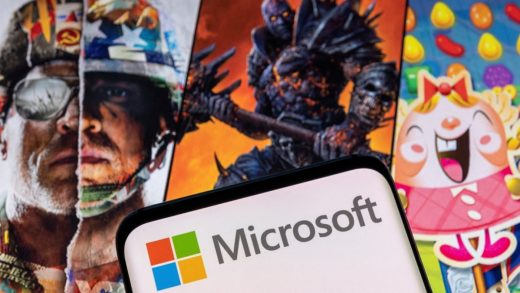
The White House on Tuesday welcomed a bill that would allow the United States to ban Chinese-owned video-sharing app TikTok, US National Security Advisor Jake Sullivan said in a statement.
The bill was backed by Mark Warner, a senior US senator from the Democratic party, and John Thune, a South Dakota Republican, in a rare act of political entente by US lawmakers.
“We applaud the bipartisan group of senators, led by Senators Warner and Thune, who today introduced the Restricting the Emergence of Security Threats that Risk Information and Communications Technology Act,” Sullivan said.
The bipartisan bill “would empower the United States government to prevent certain foreign governments from exploiting technology services… in a way that poses risks to Americans’ sensitive data and our national security,” Sullivan said in a statement.
The Senate bill and the backing of the White House accelerated the political momentum against TikTok, which is also the target of a separate piece of legislation in the US House of Representatives.
“Today, the threat that everyone is talking about is TikTok, and how it could enable surveillance by the Chinese Communist Party, or facilitate the spread of malign influence campaigns in the US,” Senator Warner said in a statement.
“Before TikTok, however, it was Huawei and ZTE, which threatened our nation’s telecommunications networks. And before that, it was Russia’s Kaspersky Lab, which threatened the security of government and corporate devices,” said Warner.
Appearing tough on China is one of the rare issues with potential for bipartisan support in both the Republican-run House and the Senate, where Biden’s Democratic Party holds a majority.
With Congress and the White House aligned on the idea that a law is necessary to curb the powers of TikTok, the chances of the legislation making it into law are greatly increased.
TikTok is owned by Chinese firm ByteDance and has more than a billion users worldwide including over 100 million in the US, where it has become a cultural force, especially for young people.
TikTok reacted by again pointing to its months of negotiations with the Committee on Foreign Investment in the United States (CFIUS), a government agency that assesses foreign investments’ risks to US national security.
“The Biden Administration does not need additional authority from Congress to address national security concerns about TikTok: It can approve the deal negotiated with CFIUS over two years that it has spent the last six months reviewing,” TikTok spokesperson Brooke Oberwetter told AFP.
Reflecting concerns voiced by free speech activists, she likened a US ban to a “ban on the export of American culture and values to the billion-plus people who use our service worldwide.”
The legislation comes after US government workers in January were banned from installing TikTok on their devices.
Civil servants at the European Union, as well as in Canada and Denmark are also barred from having TikTok on their phones.
For details of the latest launches and news from Samsung, Xiaomi, Realme, OnePlus, Oppo and other companies at the Mobile World Congress in Barcelona, visit our MWC 2023 hub.



